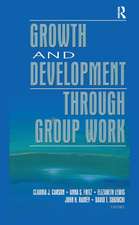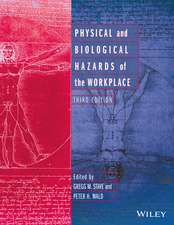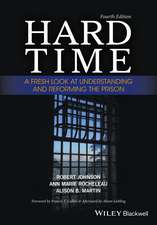Social Enterprise: Accountability and Evaluation around the World
Editat de Simon Denny, Frederick Seddonen Limba Engleză Paperback – 15 iul 2013
This book introduces and explains the terminology surrounding social enterprise and brings much-needed rigour to proceedings by demonstrating how this can be measured, evaluated and held accountable. A range of validated evaluation measures, tools and techniques, such as ‘SROI’, the ‘Outcomes Star’ and randomised control trials, are presented in individual research projects, conducted by an exciting and eclectic mix of international authors who are recognised experts in the field of social enterprise.
Wrapping up with the ground-breaking use of a General Self-Efficacy scale, a reflective critique of social finance and a challenge to the actual concept of social enterprise, the book discusses the potential disadvantages that can arise from the commodification of social enterprise activities, resulting in a fascinating summary of current thinking surrounding this topic.
| Toate formatele și edițiile | Preț | Express |
|---|---|---|
| Paperback (1) | 447.51 lei 6-8 săpt. | |
| Taylor & Francis – 15 iul 2013 | 447.51 lei 6-8 săpt. | |
| Hardback (1) | 1166.80 lei 6-8 săpt. | |
| Taylor & Francis – 19 iul 2013 | 1166.80 lei 6-8 săpt. |
Preț: 447.51 lei
Nou
85.63€ • 89.65$ • 70.85£
Carte tipărită la comandă
Livrare economică 05-19 aprilie
Specificații
ISBN-10: 0415626102
Pagini: 264
Ilustrații: 7 black & white illustrations, 8 black & white tables, 7 black & white line drawings
Dimensiuni: 156 x 234 x 18 mm
Greutate: 0.41 kg
Ediția:New.
Editura: Taylor & Francis
Colecția Routledge
Locul publicării:Oxford, United Kingdom
Public țintă
Postgraduate and UndergraduateCuprins
Part I: Overview 1. Evaluating Social Enterprise: An International Perspective (Simon Denny and Fred Seddon) Part II: Defining Social Enterprise: A Theoretical Perspective 2. Social Enterprise or Social Entrepreneurship: Which Matters and Why? (John Thompson and Jonathan M. Scott) 3. Social Enterprise Management: How do Social Enterprises Compete (Bob Doherty) 4. It's not You, it's Me!: Breaking up Social Entrepreneurship Identity (Chris Mason) Part III: Evaluating Social Enterprise: International Research Studies 5.Working for a Social Enterprise: An Exploration of Employee Rewards and Motivations (Belinda Bell and Helen Haugh) 6. When Social Enterprises do it Better: Efficiency and Efficacy of Work Integration in the Italian Social Cooperatives (Carlo Borzaga and Sara Depedri) 7. Fostering Wellbeing of Immigrants and Refugees?: Evaluating the Outcomes of Work Integration Social Enterprise (Jo Barraket) 8. Does Social Enterprise offer any Added Value?: A Comparative Evaluation of the Outcome Benefits of Work-Integration Programmes in the Third and Private Sectors (Richard Hazenberg) 9. How do we know if Social Enterprise Works?: Tools for Assessing Social Enterprise Performance (Kelly Hall and Malin Arvidson) Part IV: Evaluating Social Enterprise: A Critical Perspective 10. Filling the Capital Gap: Institutionalizing ‘Social’ Finance (Alex Nicholls) 11. In Futile Search of Excellence: The 'Muddling through Agenda' of Service-Providing Social Enterprises in Contemporary Europe (Ingo Bode) 12. Social Enterprise through a Critical Appreciative Lens (Suzanne Grant) Part V: The Future for Evaluation of Social Enterprise 13. Summarising and Projecting into the Future (Simon Denny and Fred Seddon)
Recenzii
Mariarosa Scarlata, Newcastle University Business School
This new book provides a refreshing and informed international perspective on social enterprise. Based on contributions from 17 leading scholars from several counties, it is essential reading for those with an interest in the study and practice of social enterprise.
Jonathan Bland, Managing Director, Social Business International, founder of E3M and member of GECES
For many within the social enterprise movement, evaluation, which this book interrogates conceptually and empirically, represents the most promising strategy for encouraging social redress.
Boris Urban, University of Witwatersrand, South Africa.
This book will be welcomed by practitioners and researchers alike, offering as it does a disciplined and knowledgeable account of the key issues.
Peter Lawrence, Loughborough University
Notă biografică
Simon Denny is Professor of Entrepreneurship and Social Enterprise Development Director at the University of Northampton. His research interests are in the areas of social enterprise, entrepreneurship and social inclusion, and effective support for new enterprises. He is joint head of the Centre for Entrepreneurship, Enterprise and Governance (CEEG).
Fred Seddon is Social Enterprise Researcher in the School of Social Sciences at Northampton University. Prior to taking up his current post he held research posts at the Open University, UK, and Padua University, Italy. He has published extensively in the fields of Social Enterprise and Music Psychology/Education
Descriere
Social enterprise has become a much discussed term in recent years, often in conjunction with the public sector - the idea that entrepreneurship might somehow step in and save the public purse has taken hold in a number of areas.
This book introduces and explains the terminology surrounding social enterprise and brings much-needed rigour to proceedings by demonstrating how this can be measured, evaluated and held accountable. A range of validated evaluation measures, tools and techniques, such as ‘SROI’, the ‘Outcomes Star’ and randomised control trials, are presented in individual research projects, conducted by an exciting and eclectic mix of international authors who are recognised experts in the field of social enterprise.
Wrapping up with the ground-breaking use of a General Self-Efficacy scale, a reflective critique of social finance and a challenge to the actual concept of social enterprise, the book discusses the potential disadvantages that can arise from the commodification of social enterprise activities, resulting in a fascinating summary of current thinking surrounding this topic.











